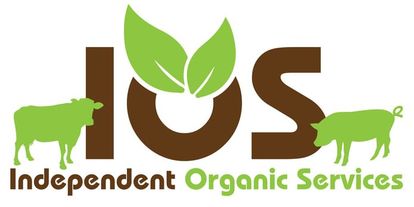Below are some frequently asked questions:
What can be certified?
Under the US National Organic Program, or “NOP,” it is possible to certify almost all livestock and agricultural operations and the products produced from them, including processed foods, livestock and pet foods, honey and even some personal care products like soap or simple cosmetics. Notable exceptions include cannabis and fish/aquaculture operations/products, although wild harvested, terrestrial (herbs/berries) and aquatic plants (kelp) can be certified.
Is my operation a “producer” or a “handler” operation?
The NOP separates operations into two broad categories, “handlers” and “producers.”
Producers are defined as “a person who engages in the business of growing or producing food, fiber, feed, and other agricultural-based consumer products.”
Handlers are defined as “any operation or portion of an operation (except final retailers of agricultural products that do not process agricultural products) that receives or otherwise acquires agricultural products and processes, packages, or stores such products.
Within this taxonomy, there are some grey areas for “on farm processing,” often depending on the policies of a particular certifier. For example, a medicinal herb operation may be able to dry, mill and package their products, provided they don’t purchase raw materials from other sources, or a dairy operation may be able to process bottle their own milk.
What products can be certified under EU, Canadian or Mexican certification?
In general, EU, Canadian (COR) and Mexican (LPO) certification requirements are very similar to the NOP, with a few exceptions. For example, the certification of pet food or personal care products is not allowed.
Under the US National Organic Program, or “NOP,” it is possible to certify almost all livestock and agricultural operations and the products produced from them, including processed foods, livestock and pet foods, honey and even some personal care products like soap or simple cosmetics. Notable exceptions include cannabis and fish/aquaculture operations/products, although wild harvested, terrestrial (herbs/berries) and aquatic plants (kelp) can be certified.
Is my operation a “producer” or a “handler” operation?
The NOP separates operations into two broad categories, “handlers” and “producers.”
Producers are defined as “a person who engages in the business of growing or producing food, fiber, feed, and other agricultural-based consumer products.”
Handlers are defined as “any operation or portion of an operation (except final retailers of agricultural products that do not process agricultural products) that receives or otherwise acquires agricultural products and processes, packages, or stores such products.
Within this taxonomy, there are some grey areas for “on farm processing,” often depending on the policies of a particular certifier. For example, a medicinal herb operation may be able to dry, mill and package their products, provided they don’t purchase raw materials from other sources, or a dairy operation may be able to process bottle their own milk.
What products can be certified under EU, Canadian or Mexican certification?
In general, EU, Canadian (COR) and Mexican (LPO) certification requirements are very similar to the NOP, with a few exceptions. For example, the certification of pet food or personal care products is not allowed.
